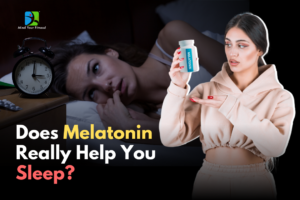In the past few years, more people have been trying intravenous (IV) therapy, believing it brings various health advantages like more energy and a better immune system. However, as with any trend in the health and wellness industry, skepticism and controversy surround the effectiveness and legitimacy of IV therapy.
What is Intravenous vitamin therapy?
Intravenous (IV) vitamin therapy, sometimes known as intravenous micronutrient or hydration therapy, delivers concentrated vitamins, minerals and antioxidants directly into the bloodstream. This approach allows for rapid absorption of higher doses of essential nutrients, surpassing what can be achieved through traditional methods like dietary intake or supplements.
Does it work?
Deficiencies in nutrition can result in various symptoms, including diarrhea, weight loss, inflammation of the tongue, and anemia. Problems with absorbing essential nutrients from food, known as malabsorption issues, can arise due to factors such as intestinal damage from gastrointestinal disorders or surgical procedures like the removal of a portion of the intestine.
The body requires daily small amounts of essential vitamins and minerals, typically sourced from the diet & supplementation. Intravenous vitamin use is reserved for specific severe medical conditions, such as malabsorption syndromes leading to significant vitamin depletion, Wernicke’s encephalopathy, or critical illness.
Intravenous drips, like the widely known ‘Myers’ cocktail,’ containing high doses of various vitamins and minerals, have gained popularity in mainstream culture for claims of stress reduction, increased energy, or enhanced immunity. Advocates assert that the intravenous route facilitates faster absorption of vitamins into the bloodstream compared to oral intake.
The Myers’ cocktail is a popular formula among complementary and alternative medicine providers for IV vitamin therapy.
- The Myers’ formula consists of high doses of B vitamins, vitamin C, and minerals (magnesium and calcium) mixed with sterile water.
Sellers of IV vitamin therapy also claim that infusions are better than dietary sources of the vitamins because-
- The infusions can be given to people with various food sensitivities.
- Large amounts of vitamins and minerals are delivered directly into the bloodstream, so they have a more direct path into the cells and mitochondria, where they allegedly have beneficial effects.
Yet, there is limited scientific evidence supporting these claims.
These treatments are mostly safe, but essentially, they just lead to people producing “costly urine”.
Possible side effects
Like any intravenous treatment, IV vitamin therapy may increase the risk of infection, blood clots, and cause a burning sensation at the injection site.
For individuals with imbalances in magnesium or potassium levels in the blood (often due to kidney disease, diuretic use, or excessive alcohol consumption), infusions containing magnesium (or, less frequently, potassium) may lead to issues like abnormal heart rhythms or muscle weakness. For individuals with heart conditions or high blood pressure, a high-dose vitamin infusion might result in excessive fluid, potentially causing temporary or, in some cases, permanent harm to the kidneys, brain, and/or heart. Administering the infusion too rapidly can also lower blood pressure, possibly due to the magnesium content, leading to feelings of light-headedness and fainting.
As per some research findings, infusions like the Myers’ cocktail or other blends of vitamins and minerals may result in symptoms of depression, insomnia, and upset stomach. It’s crucial to note that excessive intake of vitamins and minerals can be harmful. For instance, substantial IV doses of thiamine, a B vitamin, could lead to anaphylaxis, a potentially life-threatening allergic reaction. Additionally, elevated doses of vitamin B6 may cause damage to peripheral nerves, known as peripheral neuropathy. It’s important to highlight that the safety of IV vitamin therapy in pregnant and breastfeeding women hasn’t been thoroughly studied.
Takeaway
IV infusions are not the ideal route for delivery of essential vitamins and minerals. A well formulated diet with supplementation is adequate to maintain health and fitness. If you have a medical condition, consult a qualified dietitian before beginning supplementation.
References
- https://www.msdmanuals.com/en-in/home/special-subjects/dietary-supplements-and-vitamins/intravenous-vitamin-therapy-myerscocktail#:~:text=According%20to%20a%20few%20study,B%20vitamin%2C%20can%20cause%20anaphylaxis
- https://www.health.com/mind-body/does-iv-vitamin-therapy-work
- Wells C, Butcher R, McCormack S. Intravenous Multivitamin Therapy Use in Hospital or Outpatient Settings: A Review of Clinical Effectiveness and Guidelines [Internet]. Ottawa (ON): Canadian Agency for Drugs and Technologies in Health; 2020 Oct 15. https://www.ncbi.nlm.nih.gov/books/NBK567072/
- https://www.cedars-sinai.org/blog/iv-vitamin-therapy.html#:~:text=In%20addition%20to%20the%20most,in%20people%20making%20expensive%20urine.%22
- https://atlashealthmedicalgroup.com/what-are-the-risks-of-iv-nutrition-therapy/





